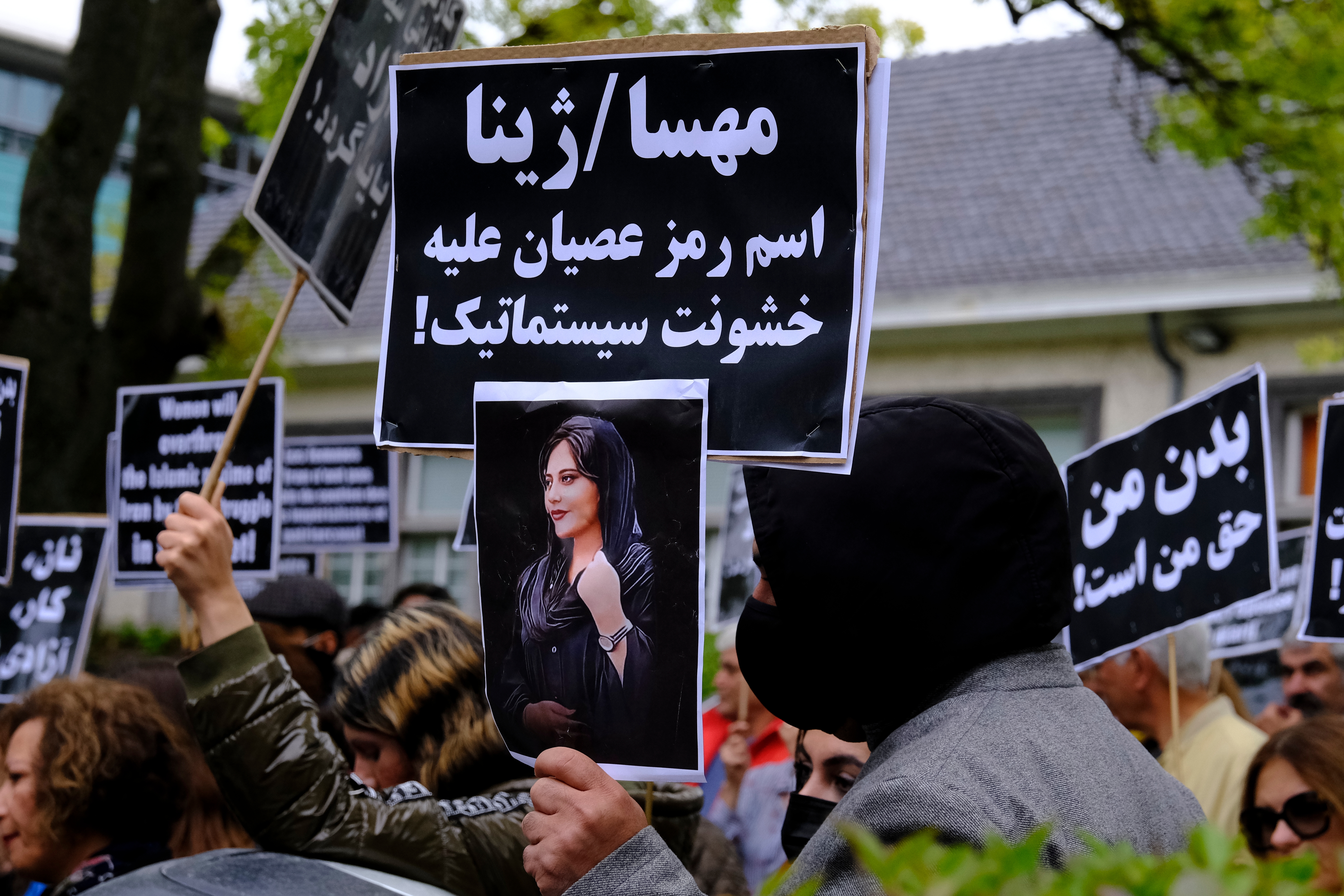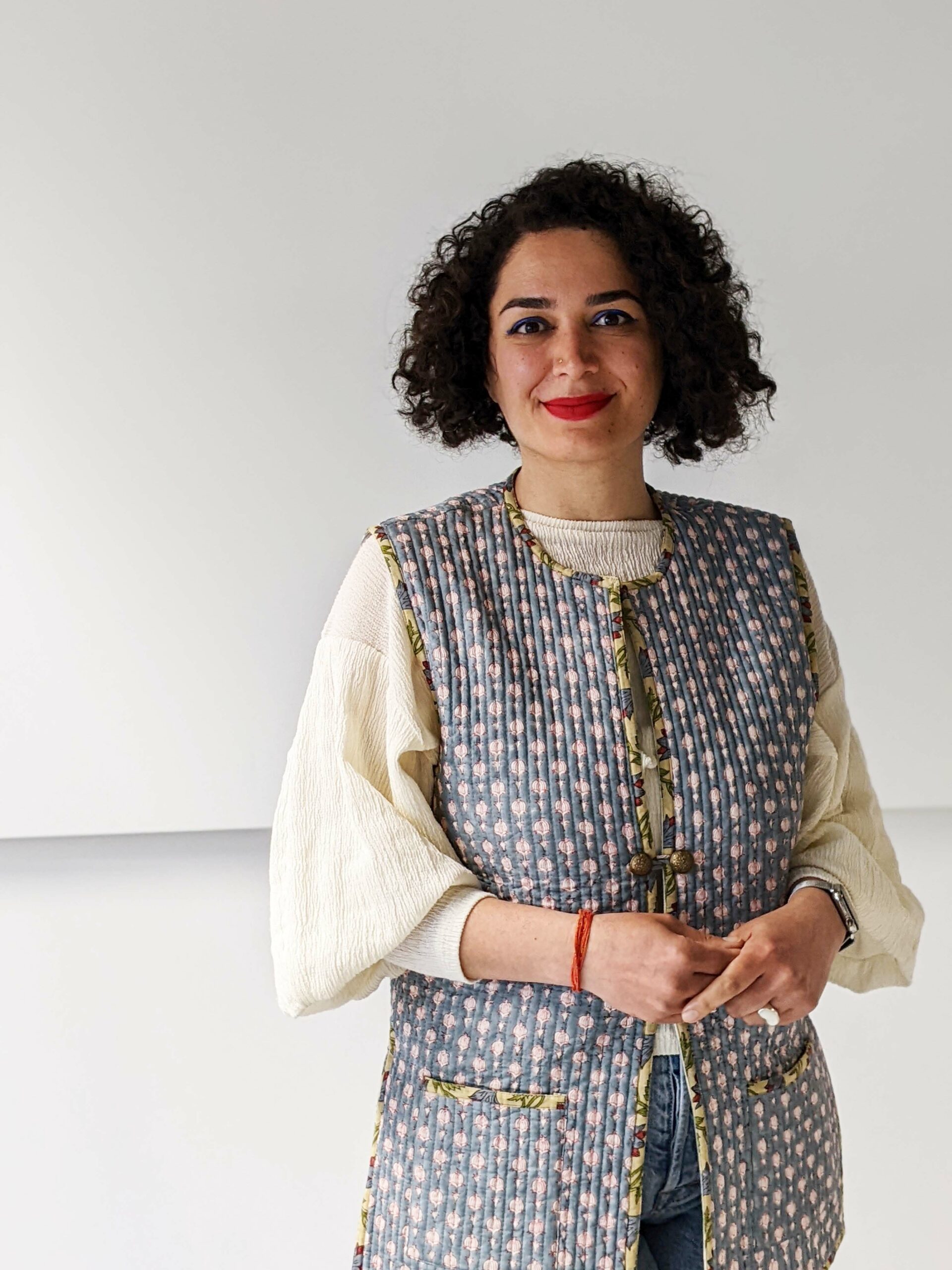
Soudeh Rad is an Iranian-French eco queer-feminist activist and researcher with 20 years of experience in social and political activism. They have worked in different communities, environments, and levels. Aware of the importance of intersectional thinking and activism, they focus on the areas of sexuality, comprehensive sex education, the climate crisis, diversity, inclusion and equal rights. Soudeh is one of the co-founders and Executive Director of Spectrum.
Articles by Soudeh Rad

Don’t ‘Woman, Life, Freedom’ Us: Fighting for Sexual and Reproductive Rights After the 12-Day War
Spectrum, Iran Community PartnerAs a queer-feminist not-for-profit organisation, Spectrum works on a spectrum of projects connected to Gender Equality and Education focusing on different marginalized target groups, specifically an advanced understanding of the SRHR. Spectrum positions itself at the intersection of queer feminism, environmentalism, anti-capitalism, anti-colonialism, and anti-racism efforts, working towards a free and equal world. The 12-Day WarOn the night of June 13, 2025, the Israeli army launched a surprise attack on Iran, starting with targeted strikes on high-level military and nuclear programme figures and escalating to bombings of houses and infrastructure. In response, Iran launched missiles and bombs, leaving civilians in fear and disbelief at how their lives had radically changed overnight. Whether people packed their suitcases and left the bigger cities under fire or hunkered down and stayed ‘home,’ there was no escaping the war. For women and queer people in particular, the consequences for their health and rights were catastrophic. Sexual and Reproductive Health and Rights under BombardmentsIt is hazardous to carry a child in a war, particularly in a country lacking basic protection and healthcare infrastructure. In Iran, pregnant people struggled to find safe places to deliver their babies and faced increased risks to their physical and mental health. For some, the war blocked access to essential care in the final weeks of their pregnancies. For others, the war caused traumatic miscarriages, leaving both physical and mental scars. Some gynecologists, obstetricians, nurses, and doctors began offering their services online, mostly free of charge, to support women and families in crisis. Some individuals have found support in their destinations, but many were without proper care and faced devastating consequences. Single parents, especially mothers, shouldered an equally heavy burden – sheltering their families from the war, both physically and emotionally. “G”, a 40-year-old single mother of a 6-year-old from Tehran, explained: “I managed to protect my child from even knowing there was a war ongoing. She understood that we were on a trip and were having fun. My whole family, friends, and I protected her, but in reality, we were very stressed and trying to find ways to distract her. I drove over 1000 kilometers to get to a place where things would be calmer. I put on headsets and followed the news, while my child was listening to happy children's songs. While I was not sure how many more days I would have enough money to support us, I knew I was responsible for her well-being.”









